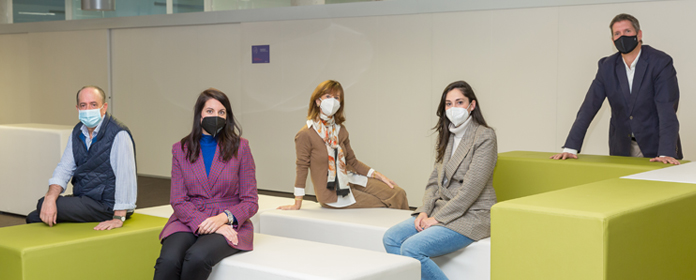Parental affection and control prevent substance abuse and promote constructive leisure among adolescents.
This is the result of a research of the School of Nursing and the ICS of the University of Navarra with 3,300 adolescents from 4 countries.

PHOTO: Manuel Castells
According to a article published in the International Journal of Environment Research and Public Health, adolescents raised with greater parental affection and control have a behavioral patron saint with less substance use and more time spent in constructive leisure.
This is one of the conclusions reached by the project "A+ (Adolescentes en positivo)", developed by the researchers Maider Belintxon and Marta Vidaurreta from the School de Enfermería; and by Alfonso Osorio, Jokin de Irala and Charo Reparaz from the ICS (ICS) of the University of Navarra. Institute for Culture and Society (ICS) of the University of Navarra.
With a sample of 3,300 adolescents between the ages of 12 and 15 from Spain, Mexico, Chile and Peru, the results of the research show "the protective effect that the family has on them, which also contributes and increases their capacity to achieve a positive development ", explains one of its authors, Maider Belintxon, PhD in Nursing.
In the area of parental affection, the team at research has included the fact that parents know and understand their children, that they talk to them in a friendly way, spend time listening to them and accept them as they are. "Doing so," the researcher stresses, "is associated with lower consumption of alcohol, tobacco, marijuana and other drugs among adolescents. At the same time, parental affection encourages young people to engage in more outdoor activities, collaborate with volunteer activities associations, get involved in artistic and educational activities and share leisure time with their own parents".
Making decisions "jointly between parents and children".Regarding parental control, the research -funded by the research PIUNA Plan of the University of Navarra- shows that there is evidence of its protective nature in preventing the consumption of harmful substances by adolescents: "Parental control -understood as the limits set by parents, for example in the use of screens-, as well as the fact of making joint decisions between parents and children on issues such as schedules, is related to the internship of constructive leisure and the reduction of the time young people spend in the street, in shopping centers, in game rooms or in public places without the presence of adults", indicates Alfonso Osorio, researcher principal of the project 'Education de la afectividad y la sexualidad humana' of the Institute for Culture and Society.
In the case of single-parent families, the results indicate a lower score in affection and control: "The minors in this status shared less constructive leisure time and showed more substance use". The opposite effect to that observed, according to the authors, in adolescents whose parents had programs of study university degrees and, therefore, in general a higher socioeconomic level: "This reality is linked to young people who feel more affection and positive control by their mothers and fathers and who, once again, enjoy more and better leisure time", concludes co-author Marta Vidaurreta, PhD in Nursing.
